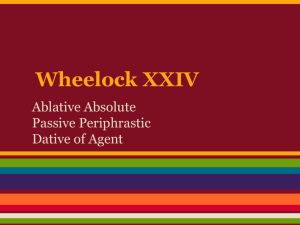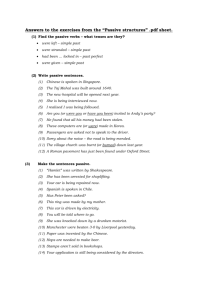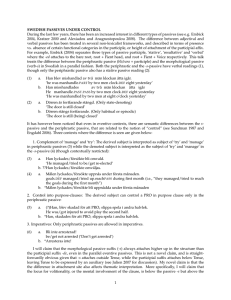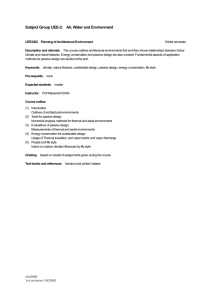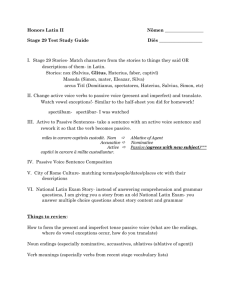Passive Periphrastic The most intimidating feature of the passive
advertisement
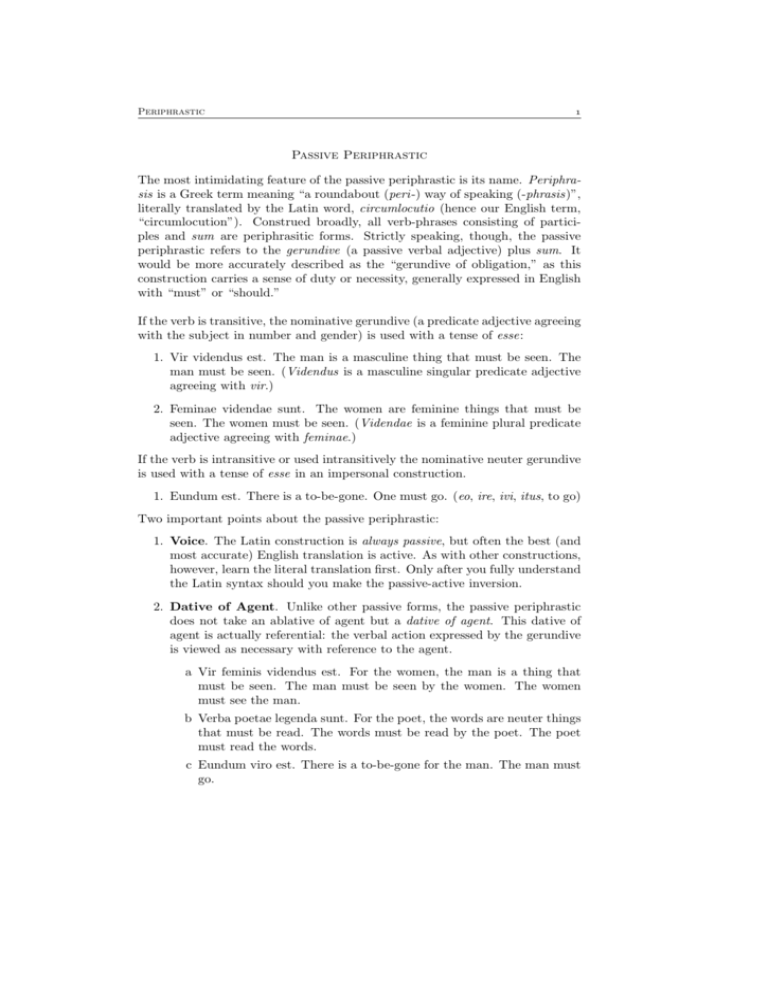
Periphrastic Passive Periphrastic The most intimidating feature of the passive periphrastic is its name. Periphrasis is a Greek term meaning “a roundabout (peri -) way of speaking (-phrasis)”, literally translated by the Latin word, circumlocutio (hence our English term, “circumlocution”). Construed broadly, all verb-phrases consisting of participles and sum are periphrasitic forms. Strictly speaking, though, the passive periphrastic refers to the gerundive (a passive verbal adjective) plus sum. It would be more accurately described as the “gerundive of obligation,” as this construction carries a sense of duty or necessity, generally expressed in English with “must” or “should.” If the verb is transitive, the nominative gerundive (a predicate adjective agreeing with the subject in number and gender) is used with a tense of esse: 1. Vir videndus est. The man is a masculine thing that must be seen. The man must be seen. (Videndus is a masculine singular predicate adjective agreeing with vir.) 2. Feminae videndae sunt. The women are feminine things that must be seen. The women must be seen. (Videndae is a feminine plural predicate adjective agreeing with feminae.) If the verb is intransitive or used intransitively the nominative neuter gerundive is used with a tense of esse in an impersonal construction. 1. Eundum est. There is a to-be-gone. One must go. (eo, ire, ivi, itus, to go) Two important points about the passive periphrastic: 1. Voice. The Latin construction is always passive, but often the best (and most accurate) English translation is active. As with other constructions, however, learn the literal translation first. Only after you fully understand the Latin syntax should you make the passive-active inversion. 2. Dative of Agent. Unlike other passive forms, the passive periphrastic does not take an ablative of agent but a dative of agent. This dative of agent is actually referential: the verbal action expressed by the gerundive is viewed as necessary with reference to the agent. a Vir feminis videndus est. For the women, the man is a thing that must be seen. The man must be seen by the women. The women must see the man. b Verba poetae legenda sunt. For the poet, the words are neuter things that must be read. The words must be read by the poet. The poet must read the words. c Eundum viro est. There is a to-be-gone for the man. The man must go.
